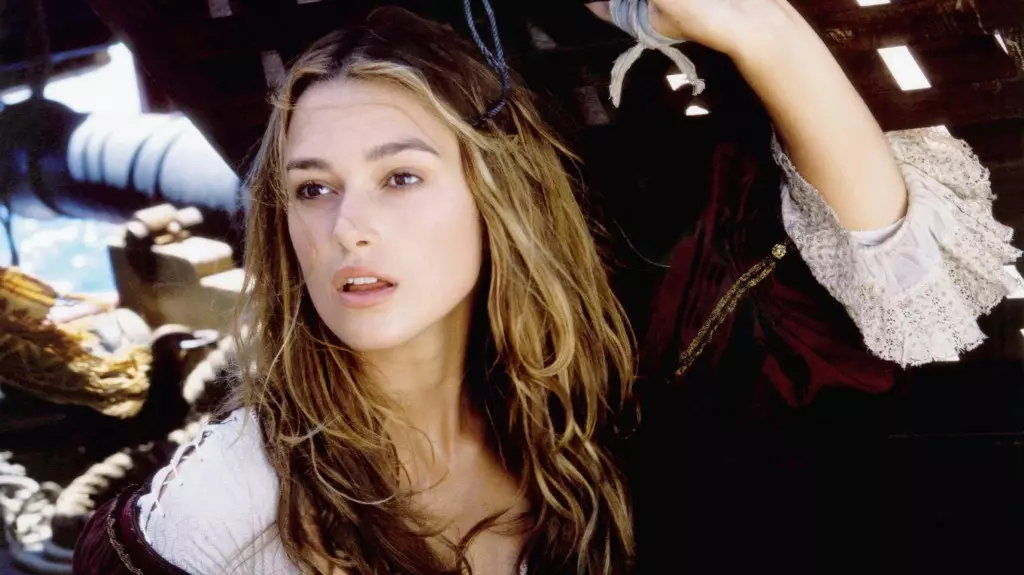In the complex world of cinema, few narratives resonate as deeply as that of Keira Knightley, a name synonymous with modern film royalty. Since her breakout role in the original “Pirates of the Caribbean” films at the tender age of 17, Knightley’s journey has been both remarkable and tumultuous. This iconic franchise was pivotal in her career, yet it simultaneously brought about a wave of public scrutiny that shaped her perception of fame. In her recent interview with The Times of London, Knightley boldly declared that she has no intention of returning to franchise filmmaking. The decision reflects not only her evolution as an artist but also an insightful critique of the demands placed on actors within the Hollywood machine.
Knightley’s sentiment captures the dual nature of blockbuster success: while it can catapult an actor into stardom, it can also tether them to an exhausting cycle of public expectation and personal sacrifice. For Knightley, the “Pirates” films made her a household name, yet they also subjected her to harsh criticism and a contrived public persona that she felt she desperately needed to escape. This tension between success and personal turmoil encapsulates the experience of many actors in similar positions, and Knightley’s reflections reveal a thoughtful awareness of this paradox.
Emerging into the limelight during the early 2000s, Knightley experienced fame in an era that often trivialized the struggles of young women in Hollywood. She frequently found herself battling tabloid gossip, including unfounded speculations about her health that painted her in a damaging light. Knightley expressed that the scrutiny she faced was not only an invasion of privacy but also a form of public shaming that has lingered in her mind. The arduous nature of fame is often overlooked, and Knightley’s candid discussion about her mental health journey highlights a significant, distressing truth that many young actors endure but rarely voice.
This tumultuous relationship with fame has now become a critical portion of her identity. Knightley reveals a sense of disorientation associated with her past successes. On the one hand, the films that launched her career also served as the foundation for her most esteemed work, such as “Pride and Prejudice” and “The Imitation Game.” On the other hand, they were moments that subjected her to the ugliness of public scrutiny, complicating her relationship with the very things that propelled her forward.
A Shift in Perspective
Having stepped back from the relentless demands of mainstream cinema—primarily multimedia spectacles—Knightley’s focus has shifted, particularly following motherhood. The responsibilities of raising her two daughters alongside musician James Righton have afforded her time for introspection and a reevaluation of her career priorities. This transition suggests a conscious decision to reclaim agency over her life and the roles she takes, moving away from the frantic, high-pressure atmosphere of franchise filmmaking.
Her upcoming project, Netflix’s “Black Doves,” marks a return to the screen, but with intentions rooted in artistic fulfillment rather than commercial success. Working alongside reputable talents such as Ben Whishaw, Knightley appears set to navigate a terrain that offers her creative satisfaction without the intense burden of being part of an expansive cinematic universe. Herein lies her victory: prioritizing personal growth over fame, and relishing in the art of storytelling without the weight of past expectations.
As she embarks on this next chapter of her career, Knightley embodies the evolution of an artist who refuses to be pigeonholed. In doing so, she sets a significant precedent in not just the film industry, but also in the broader narrative of women reclaiming their power amidst a culture that can often be unforgiving. Her story serves as a reminder that the glimmer of Hollywood can come at a cost, but with resilience and self-awareness, one can carve out a fulfilling path that honors both personal and professional goals.
In closing, Keira Knightley stands as a beacon of introspection and strength, taking charge of her narrative in an industry rife with complexities. As she looks toward the future, her story resonates with countless others who seek to balance the weight of fame with the pursuit of authenticity and happiness.
